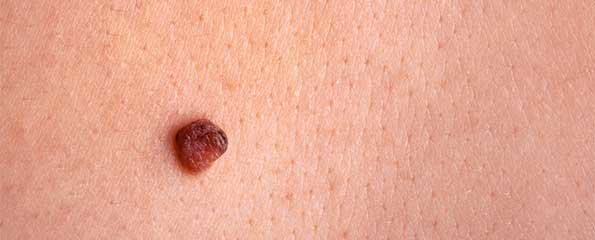Smartphones in skin checks for early detection of melanoma
QUT skin cancer researchers are seeking community volunteers to participate in a skin self-examination study. Performed regularly, self-examination can alert you to changes in your skin and may improve the early detection of melanoma.
Professor Monika Janda, from QUT’s Institute of Health and Biomedical Innovation, said the study aimed to find out how well people can detect suspicious skin spots and if the new imaging technology “mobile dermatoscopes” could significantly increase early detection of melanoma.
“Melanoma is often cured when it is detected before it embeds itself deeper into the body,” Professor Janda said.
“That is why early detection by regular checking of skin lesions or changes can improve survival of melanoma.
“People with light skin that burns rather than tans, who have many moles, a family history of melanoma or a personal history of skin cancers other than melanoma are all at high risk of melanoma.
“This research is testing the use of mobile teledermoscopy which combines a skin microscope with a bright light source attached to a smartphone so that a person at home can send a photograph of a magnified image of a suspicious lesion to a dermatologist,” she said.
“The dermatologist could then provide feedback directly to the patient as to whether the lesion needs treatment, a management plan or no further action.”
People who are 18 years or older who have not had a melanoma within the past five years are asked to take part in the study. They will need an iPhone 5, 6 or 7 and live in Brisbane or be willing to travel to Brisbane for a skin check by a doctor. Selected participants will be asked to test the mobile dermatoscope. All participants receive a $50 gift voucher.
To volunteer, contact skin@qut.edu.au.
(Source: Queensland University of Technology)
Dates
Tags
Created by:

 Login
Login














